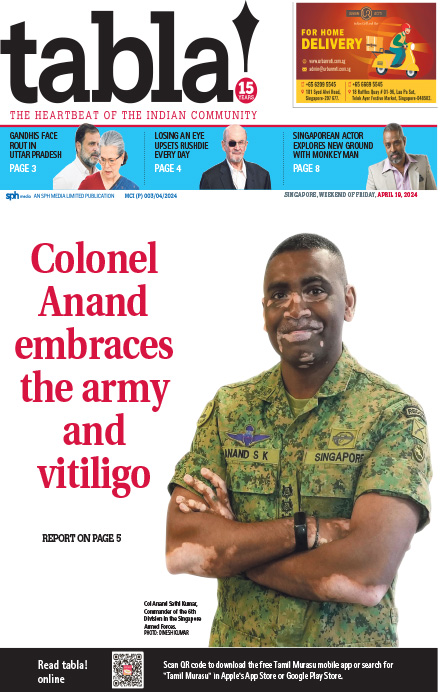A new Netflix show about an Indian matchmaker catering to the high demands of potential brides and grooms and their parents has stoked an online debate about arranged marriages in the country.
The eight-part series Indian Matchmaking premiered on Netflix on July 16 and is currently among its top-ranked India shows.
It features Ms Sima Taparia, a real-life matchmaker from Mumbai, who offers her services to families within India and abroad.
Arranged marriages in India see parents leading efforts to find a suitable match for their children.
The show has become a subject of memes, jokes and criticism - on how individuals and their parents are picky and have a long list of demands that centre on factors such as caste, height and skin colour.
"The show makes very clear how regressive Indian communities can be. Where sexism, casteism and classism are a prevalent part of the process of finding a life partner," wrote Twitter user Maunika Gowardhan.
Thousands of Twitter and Instagram posts echo that view.
"The show is simply holding a mirror to the ugly society we are a part of," said another Twitter user, Vishaka George.
Created by Oscar-nominated director Smriti Mundhra, the show focuses on matchmaker Ms Taparia's visits to the homes of families who need her assistance.
After hearing their demands, she presents resumes of prospective matches and then arranges for meetings.
"The two families have their reputation and many millions of dollars at stake. So the parents guide their children," Ms Taparia said at one point in the show, referring to some of her wealthier clients.
In the first episode titled Slim, Trim and Educated, an Indian mother tells Ms Taparia her son is getting a lot of marriage proposals but in most cases the prospective bride's education or height was not ideal.
Ms Taparia then says: "So you want a smart, outgoing, height...".
The mother interjects: "I won't even consider (a girl) below five feet three inches."
"The casualness with which people keep repeating the requirement that matches be 'fair' is disconcerting," tweeted novelist Ayelet Waldman who is also a writer on the Netflix series Unbelievable.
Ms Mundhra told media website Jezebel that she went around town to pitch her series after meeting matchmaker Taparia roughly a decade ago.
During a meeting with a potential development partner, she was told that the show wouldn't sell with its intended Indian cast.
"Well, it could maybe work if you have a white person whom she match-makes and you follow that journey through the lens of a white person," the producer told her.
Rightfully finding this response preposterous, Ms Mundhra waited until the TV landscape evolved into a more accepting and inclusive space for storytelling.
Some have praised the show for its honesty and treating its subjects respectfully.
Others seem to be appreciating its "real" storylines and leaning into its cringe-worthy plot.
One Twitter user asked: "Why does everyone have such a problem with the Indian matchmaking show on Netflix? It is accurate and shedding light on the process is important. If it makes you cringe, then you should start by having those important conversations at home."
A column in the Mint newspaper said: "The hate against it is, frankly, baffling... Indian Matchmaking is well on its way to becoming a cultural phenomenon."
Netflix has yet to order a second season of the reality show, but given the surprise endings and popularity - it's currently the 10th most-popular show on Netflix - it seems likely that a renewal is on the horizon.
Reuters, Indo-Asian News Service



